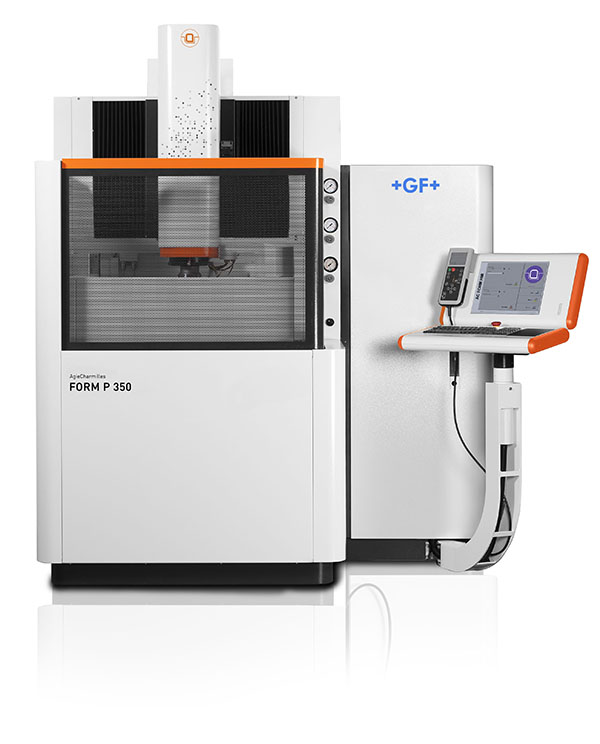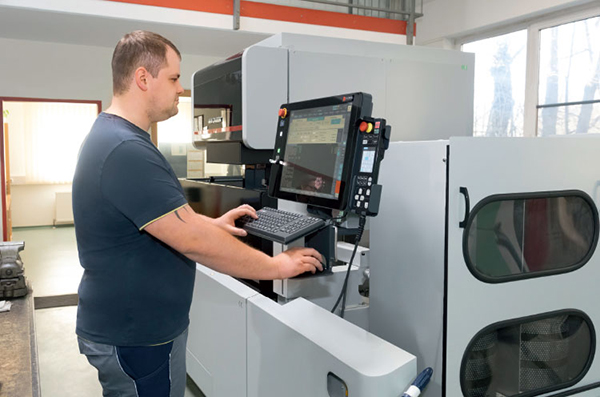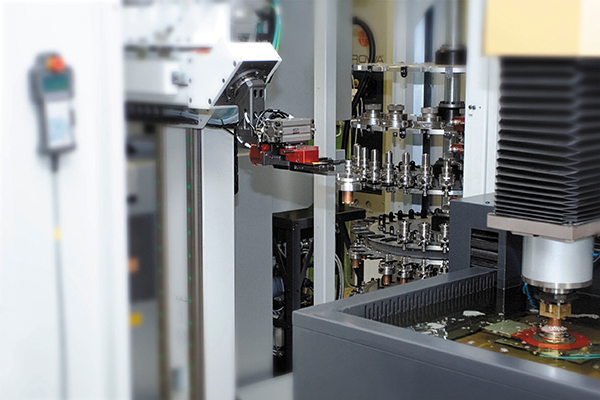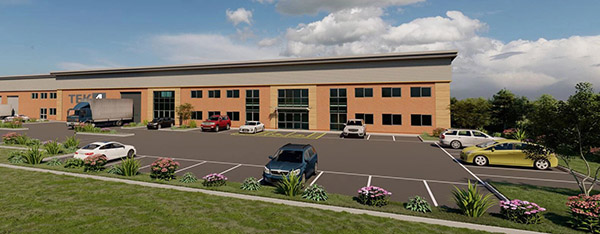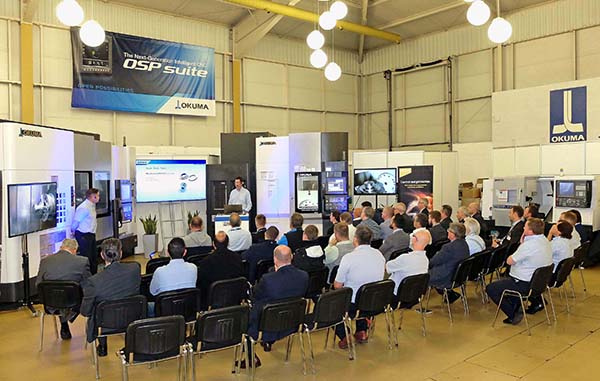The Form P 350 die-sink EDMs from GF Machining Solutions feature precision-enhancing qualities and integrated technologies that are said to boost productivity and profitability.

Featuring a compact C-axis construction, fixed table and cast-iron frame, offers stability and force reduction to maintain a precise spark gap between the part and electrode. Regardless of part weight or dielectric volume, the machines deliver consistently high accuracies and surface finishes of Ra 0.1. Furthermore, integrated glass scales preserve repeatability and eliminate the need for recalibration and errors due to backlash and wear.
GFMS Form P 350 machines are equipped with the company’s intelligent power generator and Tecform module, which optimises each pulse to reduce electrode wear and generate high-quality surface finishes. Segment-dedicated technology eliminates the need to adjust the generator’s parameters.
The company’s iQ technologies control the erosion of graphite and copper electrodes, and help reduce costs. Real-time spark characteristic analysis and setting adjustment for pulse efficiency ensure wear-free spark erosion, precision, efficiency and greater control over the cost of the electrode, says the company.
Of note, the console’s AC Form HMI is based on Windows. Interactive graphics illustrate operations such as measurement and machining cycles for ease of use, while providing descriptions of machining targets, automatic selection of optimal technologies and dynamic parameter adaption.
GFMS Form P 350 machines are supplied with a four-position linear tool changer for System 3R macro tooling. An optional rotary tool changer can be specified that increases the number of electrodes to 160. The machines can also be paired with a System 3R WorkPartner 1+ robot for unattended night and weekend operations.
Offering X-, Y- and Z-axis travels of 350 x 250 x 300 mm, the machine accommodates workpieces up to 700 x 460 x 275 mm in size.
For further information www.gfms.com/uk






